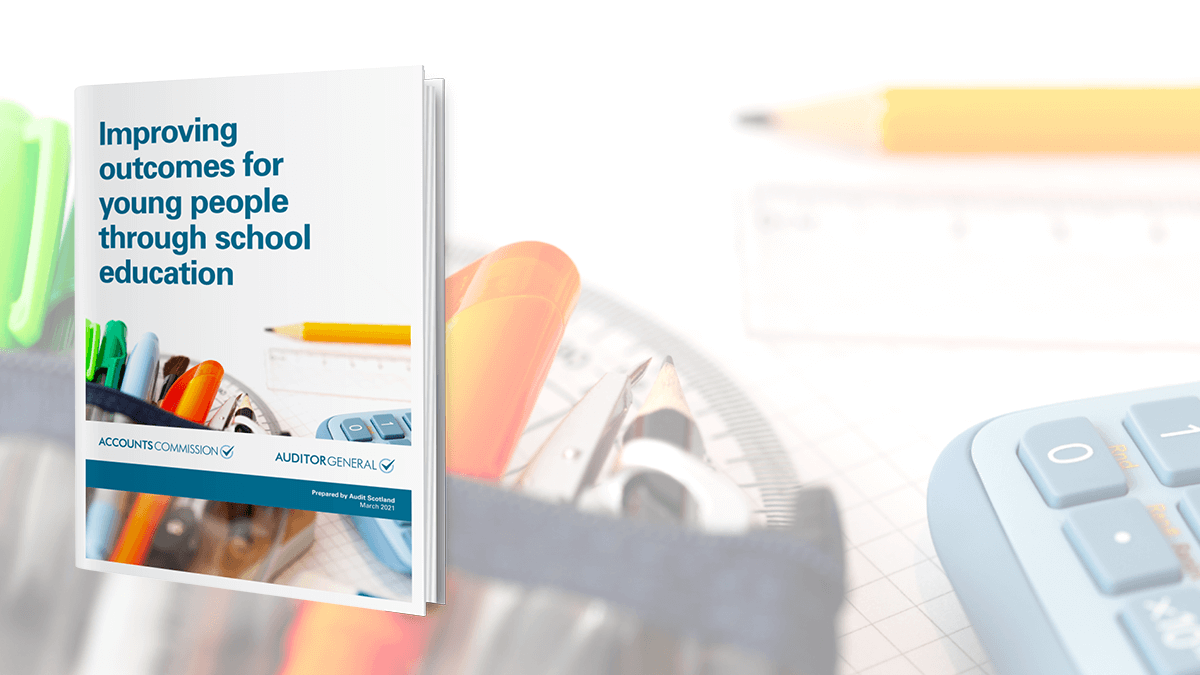Attainment gap remains wide and better education data needed

Progress on closing the poverty-related attainment gap between the most and least deprived school pupils has been limited. And more evidence is needed to understand educational achievement beyond exams.
A joint report by the Auditor General for Scotland and the Accounts Commission found that exam performance and other attainment measures at the national level have improved. However, progress since 2013-14 has been inconsistent. And there are large variations in local authority performance, with some councils' performance getting worse on some measures.
The poverty-related attainment gap remains wide and existing inequalities have been exacerbated by the Covid-19 pandemic. The national curriculum recognises that school is about more than exams. And there has been an increase in the types of pathways, awards and qualifications available to young people. But better data is needed to understand if other important broad outcomes, like wellbeing and self-confidence, are improving.
The Scottish Government, councils, schools and the other bodies responsible for planning and delivering education were working well together before Covid-19. That allowed them to respond rapidly in exceptionally difficult circumstances. Funding for education has remained largely static - rising from £4.1 billion in 2013/14 to £4.3 billion in 2018/19. However, most of that real-terms increase was due to the Attainment Scotland Fund, which the Scottish Government set up to close the attainment gap.
Stephen Boyle, Auditor General for Scotland, said:
Significantly reducing the attainment gap is complex. But the pace of improvement has to increase as part of the Scottish Government's Covid-19 recovery planning. That process needs to particularly focus on the pandemic's impact on the most disadvantaged children and young people.
Elma Murray, Interim Chair of the Accounts Commission, said:
There is variation in educational performance across Scotland, but this is not solely about exam performance. Education also supports and improves the health and wellbeing of children and young people, which has been impacted by the Covid-19 pandemic. It is vital that councils, schools and their partners work to reduce the wide variation in outcomes as well as understanding and tackling the short and longer-term impact of Covid-19 on learning and wellbeing.





